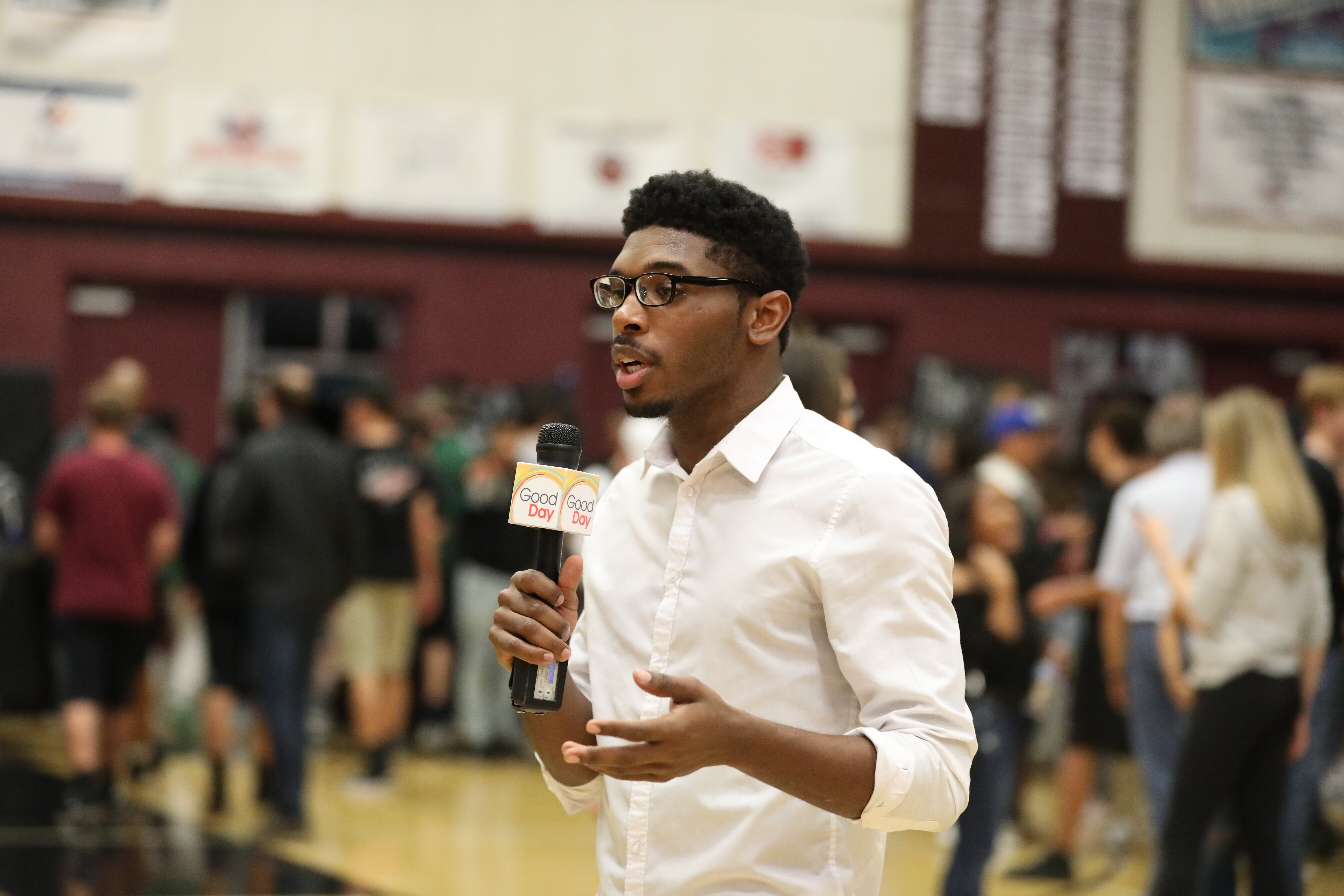“A (person) who does not read has no advantage over one who can’t read.”
Literary legend Mark Twain penned that sentiment well over a century ago.
The dynamic described by Twain was apparent on Twitter last week.
Since my teenage years, I’ve been something of a Kanye West apologist. Like millions of other young people, particularly young Black men, his early musical attempts and subsequent success demonstrated to me and my peers that a Black identity could be complex in ways we hadn’t yet seen in popular culture.
This was 2004: I was walking into my freshman year of high school clad in excessively baggy jeans, a football jersey that would have comfortably fit a man three times my size (worn backwards, of course) and a matching New Era cap deliberately tilted slightly to the right.
What was in my portable CD player? I don’t recall. Surely, something along the lines of 50 Cent, Fabolous or Nelly.
The struggle between the rap stars of the 90s and frightened suburban parents was over. The hyper-masculine, misogynistic horse was out of the barn and announcing itself proudly.
I had grown up listening to hip-hop and watching the athletes who so readily embraced it. Adopting it into my young identity was a natural move.
But for a suburban kid who grew up shooting hoops in his driveway rather than an inner-city park, it was not a natural fit.
Along came Mr. West, wearing the same pink polo my parents forced me to wear on picnic day, cowering before the constant barrage of “You’re going to college because your ancestors couldn’t,” lectures, just as I was.
It resonated. My preppy sneakers and bag full of books became the new aesthetic.
My senior year, West and 50 Cent released albums on the same day, after a summer of fanfare pitting the two against each other. My Midwestern counterpart outsold his rival on the day some hip-hop historians now call “the death of gangsta rap.”
Since, West has become perhaps the world’s most influential artist. Elements of his music are ubiquitous across genres, his ideologies are prominent in popular culture, and his own clothing is mimicked by esteemed lines such as Saint Laurent.
“Please: Do everything you possibly can in one lifetime,” he tweeted in 2015, encouraging followers like me to challenge their own ideas of what they may attempt.
The tweet has been printed, framed and sold as art.
Other tweets–such as one mocking Nike after his Yeezy sneaker collection with Adidas outsold Air Jordan in 2016–have a measurable influence on the stock market.
Despite this influence and power, West cannot overcome the disadvantages created by the color of his skin.
Yesterday, West aligned himself with President Donald Trump’s “Make America Great Again” campaign, red hat and all.
we got love pic.twitter.com/Edk0WGscp6
— KANYE WEST (@kanyewest) April 25, 2018
His socialite wife, Kim Kardashian, and protege, Chance the Rapper, quickly came to his aid.
Black people don’t have to be democrats.
— Chance The Rapper (@chancetherapper) April 25, 2018
“Black people don’t have to be Democrats,” Chance tweeted in a lame attempt at saving face for his friend and musical partner.
Kardashian tweeted that her husband was “out of the sunken place,” referencing the metaphorical space represented in the film “Get Out.”
He’s a free thinker, is that not allowed in America? Because some of his ideas differ from yours you have to throw in the mental health card? That’s just not fair. He’s actually out of the sunken place when he’s being himself which is very expressive
— Kim Kardashian West (@KimKardashian) April 25, 2018
“The Sunken Place means we’re (black people) marginalized,” director Jordan Peele tweeted after the film’s historic success. “No matter how hard we scream, the system silences us.”
West has reached the peak of popular culture and thus empowered others to move into spaces where they were previously not welcome.
Chance himself is known for his community work and pro-Black politics. Today, thanks to a tweet sent by the president’s son, his message in defense of West reached more people than his community work could hope to influence.
Trump Jr. referenced Chance’s message as proof of a “changing culture,” and punctuated his claim with a couple basketball emojis (Chance is not and has never been an athlete).
It’s always incredible to watch a cultural shift happen in real time. I respect those willing to take the lead breaking with convention. That takes guts… though there’s a better word for it. 🏀🏀 https://t.co/01jMdg6ETa
— Donald Trump Jr. (@DonaldJTrumpJr) April 25, 2018
West and Chance may be incredibly powerful–an inspiration to Black people and an example of how they may transcend limits placed on them by racism and limited thinking–but if a simple tweet, sent by a man whose influence eclipses their own by way of legislative and institutional power soils their messages, how powerful are they, really?
If Chance cannot disassociate himself from West’s alignment with bigotry for fear of upsetting the man who has had so much to do with his success, how valuable are his community work and lyrical messages?
If these people–who overcame astronomical odds to place themselves in spaces where they were once not allowed–can have their standing shaken so readily, what advantage do they truly have over their Black peers still waiting for a seat at the table?







